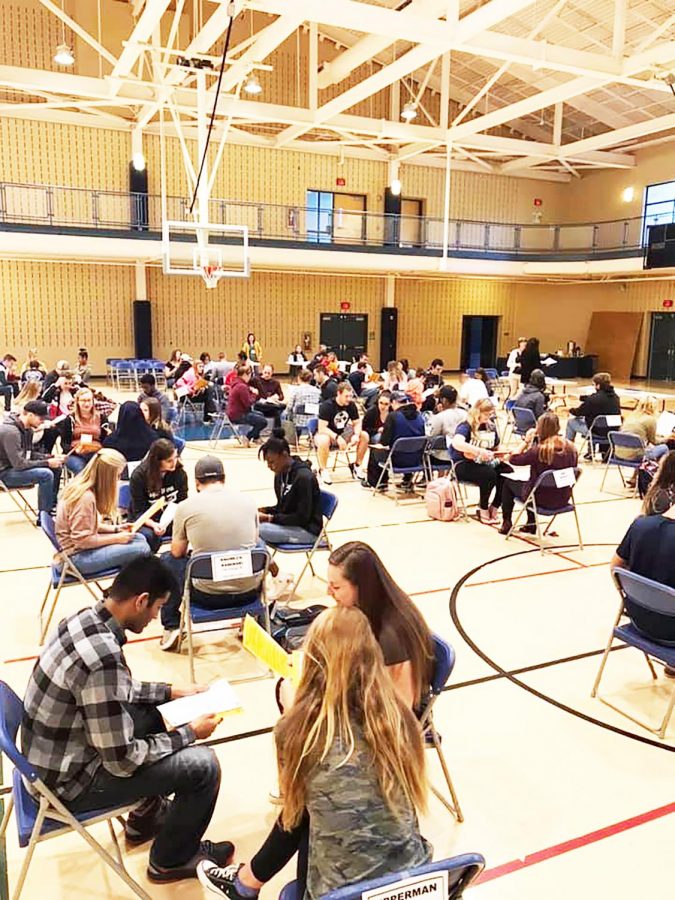Some get poverty lessons at simulation
Submitted from the event organizer, nursing professor Dawn Drahnak.
Students who participated in the poverty simulation were broken up into families with different circumstances Sept. 27
October 16, 2019
The gap between middle class and low-income Americans became uncomfortably obvious Sept. 27 for students who attended Pitt-Johnstown’s “Poverty Simulation” .
Faculty and local volunteers hosted the event aimed to mimic the experience of living on or below America’s poverty line for students who may not be aware of these hardships.
The 2019 U.S. Department of Health and Human Services poverty guidelines dictate that families of four are considered to be living in poverty when their annual income is $25,750 or less.
There are over one million impoverished people living in Pennsylvania, which is about 8% of the state’s population.
Students who attended the “Poverty Simulation” were broken into families with different circumstances: single parents, disabled people, and at-risk youths.
“(I) tried to buy a gun and shoot myself,” said an annoyed student after having his pretend house foreclosed upon, leaving him with no money to purchase food.
“My baby won’t shut up,” said another completing paperwork to receive food stamps while a doll whimpered in the crook of one of their arms because the parent could not afford $85-per-week child care.
Freshman Raechel Lawrence said she liked the way the simulation exhibited how most low-income families are unable to consider their futures when the task of surviving day to day engulfs their lives, which she was unaware of prior to attending the event.
However, Lawrence said there could be a better way to raise awareness.
“Have people who are in poverty or went through poverty speak,” she said.
She said she believes students would be more likely to care if they were to see someone who has been affected by the circumstances simulated.
Michael Cashaw, 51, who is from Atlanta, is a volunteer for the past three poverty simulations said that, as a person who has lived a privileged life, he found the event beneficial.
“I now understand how detrimental poverty is to (an) individual and to the community,” he said.
Cashaw said he encourages young people to get involved in their communities, and he urges students to use this to their advantage.
“You can benefit from helping the community because you can have a say in what takes place,” Cashaw said.

